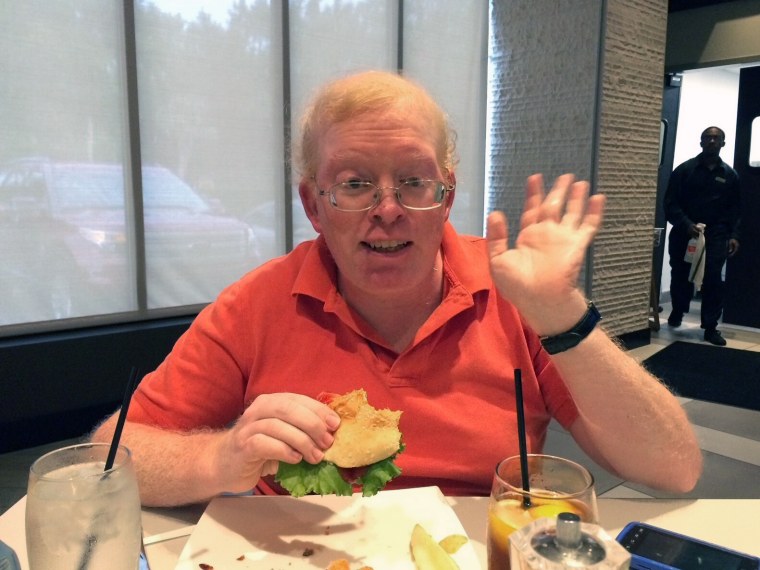[ad_1]
Panera Bread’s highly caffeinated Charged Lemonade is now blamed for a second death, according to a lawsuit filed Monday.
Dennis Brown, of Fleming Island, Florida, drank three Charged Lemonades from a local Panera on Oct. 9 and then suffered a fatal cardiac arrest on his way home, the suit says.
Brown, 46, had an unspecified chromosomal deficiency disorder, a developmental delay and a mild intellectual disability. He lived independently, frequently stopping at Panera after his shifts at a supermarket, the legal complaint says. Because he had high blood pressure, he did not consume energy drinks, it adds.

The lawsuit was filed on behalf of Brown’s mother, sister and brother less than two months after Panera was hit with a separate lawsuit regarding Sarah Katz, an Ivy League student with a heart condition who died in September 2022 after she drank a Charged Lemonade. That lawsuit, first reported by NBC News, called the beverage a “dangerous energy drink” and argued that Panera failed to appropriately warn consumers about its ingredients, which include the stimulant guarana extract.
Panera has advertised its Charged Lemonade as “Plant-based and Clean with as much caffeine as our Dark Roast coffee.” At 390 milligrams of caffeine, a large, 30-fluid-ounce Charged Lemonade has more caffeine in total than any size of Panera’s dark roast coffee, the legal complaints say. The large cup contains more than the caffeine content of standard cans of Red Bull and Monster energy drinks combined, plus the equivalent of nearly 30 teaspoons of sugar, the complaints say.
The Food and Drug Administration says healthy adults can safely consume 400 milligrams of caffeine a day.
Brown had consumed Charged Lemonades in the days leading up to his death, according to Monday’s wrongful death lawsuit, which was filed in Delaware, where Panera is incorporated.
It is unclear whether Brown knew how much caffeine and other stimulants were in the drink, which at the time of his death was available in self-serve dispensers and “offered side-by-side with all of the store’s non-caffeinated and/or less caffeinated drinks,” the suit says.
Brown’s cause of death was cardiac arrest due to hypertensive disease, according to a death certificate provided to NBC News by Elizabeth Crawford, a partner at the Philadelphia-based law firm Kline & Specter, PC, who is representing both Brown’s family and Katz’s family.
Panera said that it expressed “our deep sympathy for Mr. Brown’s family” and that it stood by the safety of its products.
“Based on our investigation we believe his unfortunate passing was not caused by one of the company’s products,” it said in a statement. “We view this lawsuit, which was filed by the same law firm as a previous claim, to be equally without merit. Panera stands firmly by the safety of our products.”
After the first lawsuit, Panera put more detailed disclosures in all of its restaurants and on its website warning customers to consume the Charged Lemonade in moderation, stating that it is not recommended for children, people sensitive to caffeine or pregnant or nursing women.
Crawford called Brown a “vital member” of his family who “always made everyone smile.” His relatives filed the lawsuit to get the word out about the dangers of the drink, she said in a phone interview.
“This is a vulnerable population that I think the community at large should help protect. And I feel like Panera failed to do that for Dennis,” she said. “Dennis’ family, just like the Katz family, hopes that this message gets out to prevent this from happening to another Dennis.”
[ad_2]
Source link
